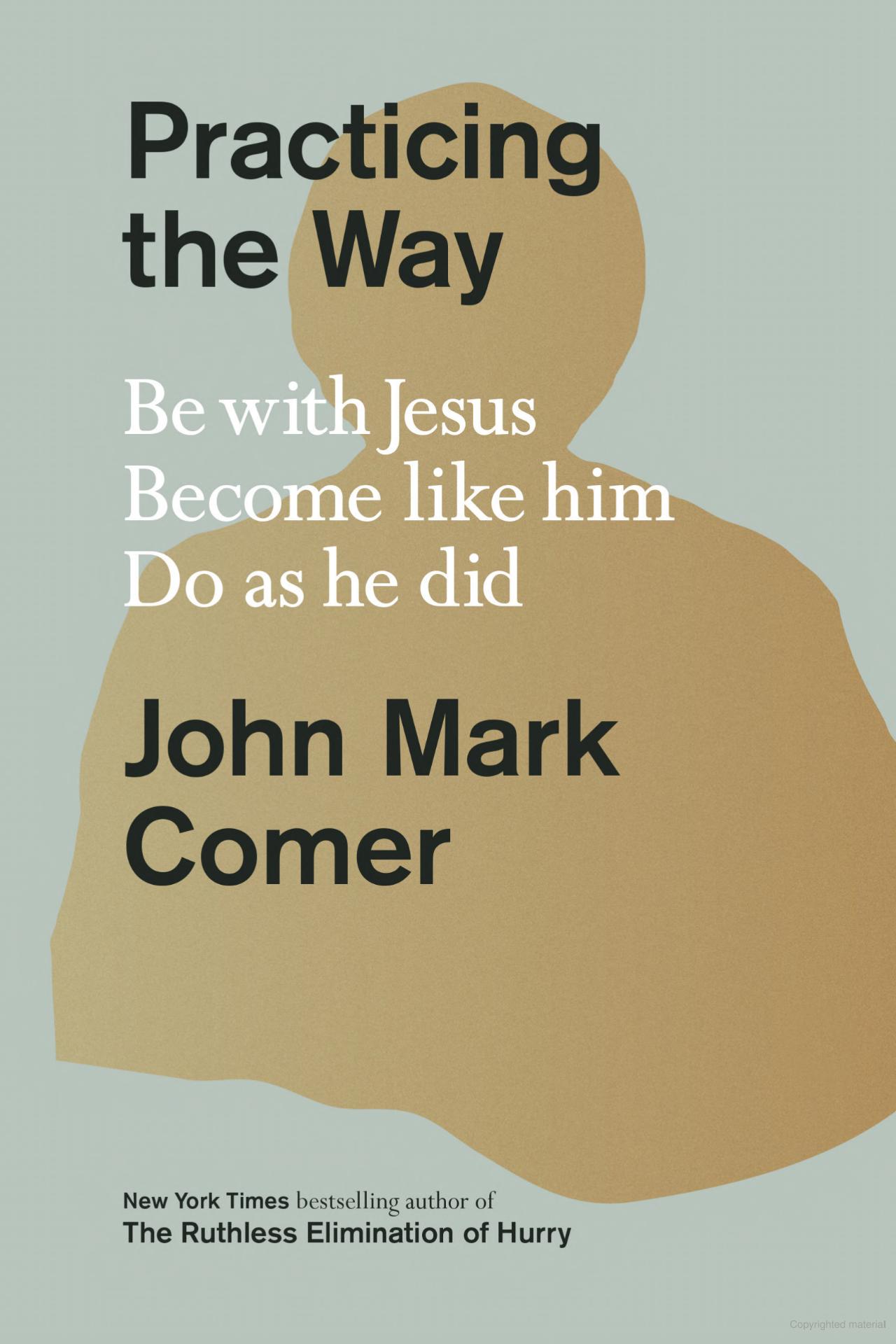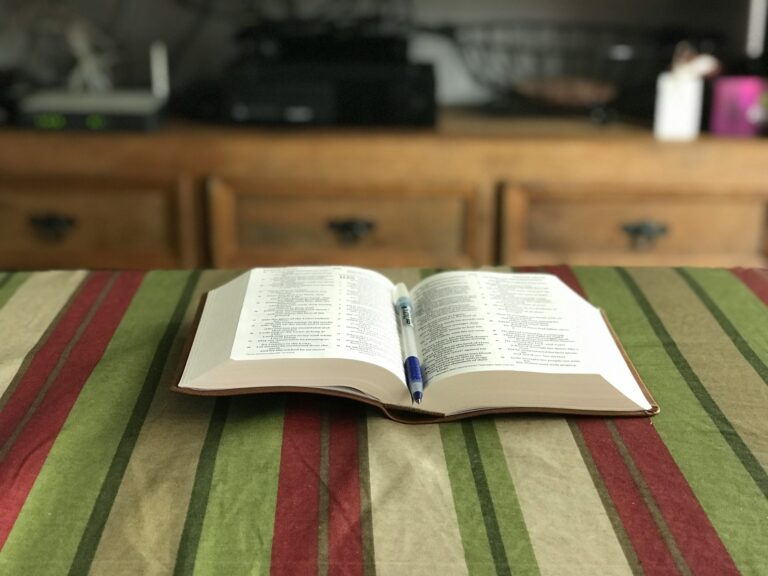I didn’t expect to enjoy John Mark Comer’s Practicing the Way as much as I did. I had heard Comer preach a sermon against Augustine and John Calvin’s view of God’s sovereignty, affirm that God limits the power of his will so that not everything happens according to God’s control, and observed him citing positively authors like Gregory Boyd and David Bentley Hart which made me wonder at Comer’s private theological views as well.
Yet for all of my negative appraisals or suspicions I had going into Practicing the Way, I found myself enjoying the book and recognizing why Comer is so influential. But that does not mean I am without criticism. Practicing the Way diagnoses the problem well, but the medicine that Comer offers cannot heal our wounds.
Comer as a Sage
Comer knows how empty faith feels to millennial Christians in particular. Many know they are forgiven, but then what? For Comer then what means having our hearts transformed by apprenticeship to Jesus rather than a focus only on the transaction of forgiveness (19ff). (Although I did not see Comer cite him at this point, Douglas Campbell’s influence felt present here.)

Practicing the Way
John Mark Comer
I found myself enjoying the book and recognizing why Comer is so influential. But that does not mean I am without criticism. Practicing the Way diagnoses the problem well, but the medicine that Comer offers cannot heal our wounds.
As well, the idea that we are too busy and must slow down to become disciples of Jesus hit home for me. We are all tired, burned out, and desire a vital relationship with Jesus. Comer’s sage-like approach to following Jesus provides a concrete vision for many of those who want to know and experience Jesus, but simply feel isolated.
Practicing the Way diagnoses the problem well, but the medicine that Comer offers cannot heal our wounds.
Oddly, however, for all of Comer’s use of the name of Jesus and allusions to him in the Bible, there is virtually no discussion of the stories of Jesus from the Bible. To become like Jesus should entail seeing Jesus in action. Given Comer’s push back against the notion that we need people to disciple us as a verb and affirmation that we are disciples/apprentices (a noun) of Jesus instead, why not show us more Jesus? I was left wanting more of him.
The language of apprenticeship and the book as a whole show Comer to draw deeply on Dallas Willard and the Spiritual Formation tradition (17). However, Comer’s eclectic citation of many of the sources make me curious about how he sees himself as a Christian.
For example, Comer’s spiritual director is a Jesuit priest (34, 50). He cites positively thinkers from the vineyard movement, the quakers, Roman Catholics, Eastern Orthodox, and probably many more besides. I have zero problem with him doing so, but my point here is to ask: is Comer Protestant? I guess having a Jesuit spiritual director means he at least is a very un-protestant Protestant!
Comer as a Mystic
To understand him better, I suspect that we need to adopt his own self-designation of being a mystic (51–52). Following Karl Rahner, Comer thinks the future Christian is mystical, or he won’t exist at all. By mystic, Comer means “a disciple of Jesus who wants to experience spiritually what is true of them theologically” (52).
I have to admit: I agree with him here if that is all that he means by the term. And many of the authorities he cites like Maximus and Evagrius are theologians that I deeply admire.
With that said, I still find his mystical positioning to place him into an odd ecclesial location. When I looked into his current church Vintage Church LA, the website affirmed, “We are connected with the worldwide Anglican Communion through our Pastor’s ordination.” Presumably that church’s pastor is ordained in the Church of England, but the church itself does not seem to practice the liturgical traditions of that communion. Doctrinally, the church affirms the Nicene and Apostles’ Creed, however.
I get the sense that Comer then does not see himself committed to a specific confessional church but rather as part of a communion of saints who can affirm the ancient creeds of Christianity. Well, fair enough. I am not trying to play any sort of gotcha game here, but I am aware of many Protestant churches that use his Practicing the Way curriculum, and I wonder how that works ecclesially.
Maybe most evangelicals feel that they have moved past confessionalism, and so his particular ties do not matter. And maybe he represents a tension found within the history of the church between prophets and presbyters, monks and bishops, and non-profits and denominations.
Comer as a Theologian
Theologically, Practicing the Way makes few incisive theological comments. Likely, this is intentional to ensure that it can influence Christians without creating specific controversies. And for a book that wants its readers to be with Jesus, become like him, and do as he did, well that too makes a lot of sense.
There is one exception. Comer speaks of God as “a community of self-giving love” (36). We “enter the flow of love within the inner life of God” (36) and become “rooted in the inner life of God” (38). Our hospitality embodies the inner life of the Trinity, which allows us to feel like God (132). And in another place, Comer writes, “At the heart of the Trinitarian community we call God is an outflow of generous, self-giving, forgiving love” (187). Again, by a generous life, Comer expects to feel like God feels in his generosity (187).
Comer explicitly cites Ronald Rolheiser as source for his trinitarian theology. And given that he has cited Jürgen Moltmann in the book, it seems not unreasonable to see influence from Moltmann and probably John Zizioulas (Comer cites Eastern Orthodox thinkers frequently) on the Trinity. Richard Rohr could be in the background too given the “flow language.” These thinkers indeed speak of the Trinity as a community, a society, one that our lives reflect. I find such positions theologically disagreeable, but I note them in passing to help readers understand Comer’s doctrine of God and how it relates to Comer’s view of our apprenticeship to Jesus.[1]
Comer as a Spiritual Director
Comer advises readers to create their own rule of life to advance in their apprenticeship to Jesus. Yet these rules that we make seem untethered from any classical rules of life which are given by a superior, and oddly individualistic since you make your own rule of life.
That said, how else could it work? Jonathan Edwards wrote his own resolutions, and we have often pointed out these resolutions as a good practice. I have a personal rule of life, although it’s much less structured than Comer’s proposals. So maybe Comer lays out a personalized rule of life since it’s the only one possible to most evangelical or non-denominational Christians.
Would I recommend the book? Probably not. I am an Augustinian Protestant who thinks the Reformation happened for good reasons. Comer rejects the Augustinian and Calvinistic doctrine of God when it comes to Providence, God bringing about the future by his will, and more besides.[2] (See my article on his doctrine of God here). And I find him having had a Jesuit Spiritual director suspect.
I want to be honest with you when it comes to biases, as book reviews often pretend a neutral tone. I am not neutral. But I also believe I am following Comer’s own prompting. In his God has a name that he released this year, he argues that What you believe about God will shape who you become.
A key thesis in the book is that one’s doctrine of God will shape their practical spirituality. So given Comer’s seeming rejection of doctrines like God’s impassibility, immutability, meticulous providence, and other doctrines (God has a name, 58, 59, 62, 64, etc.), I believe it is fair for me to say that I would not recommend this book to fellow Protestants for their spiritual formation.
That said, I deeply appreciate how Comer points to real problems with the faith of many. And yes, I want all of us to slow down, become a disciple of Jesus, and overcome the pragmatism of our age. It is so clear why Comer has become so influential, and why this book is selling so well. He frankly has hit a pulse. And people want more Jesus—Comer promises that very thing.
But may I suggest that Protestants do have a deep spiritual and liturgical tradition that we can draw on, and further, we have a common spiritualist tradition from Augustine’s Confessions to Gregory’s Moralia to Bernard’s Commentary on the Song of Songs. Maybe the answer is that we should look deeper into our own past, our own identity as a Protestant and the ways that Spirit has blessed us. Maybe we have just forgotten?
Further Resource
Wyatt Graham, “How John Mark Comer’s View of God Shapes His Spiritual Formation”
[1] John Mark Comer has just re-released an updated edition of his God has a name which argues, as its subtitle indicates, What you believe about God will shape who you become. For this reason, I am following Comer’s own argument to discern how his view of God shapes his spiritual formation.
[2] For his views of God, see his God has a name and a sermon of his called “Why?,” which he preached on June 5, 2016 (Link).




















